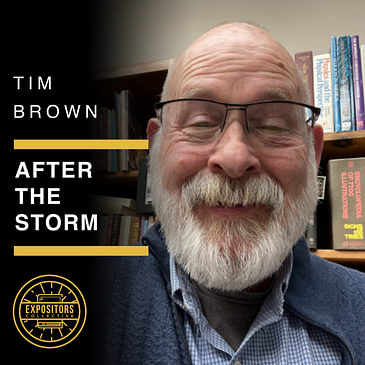From his early ministry experience in 1973 until this very day Tim Brown has worked hard to make the magnificent and lofty truths of scripture accessible to anyone and everyone who is listening. He tries to embody what Haddon Robinson quipped, "The art of preaching is getting people to see with their ears." In this conversation Tim and Mike speak about integrity, passion, and development in the pulpit.
Tim will be a main session speaker and a group leader in our upcoming preachers training event in Pleasanton, California on May 24th and 25th.
Register here: https://expositorscollective.org/gatherings/
Tim Brown had a life changing encounter with Jesus Christ on January 3rd, 1972. After that, he went to Bible College where he gained a degree and a bride. He has been in many forms of ministry since February of 1973. He has been a youth pastor, an assistant pastor, and a senior pastor. He planted the church, Calvary Chapel Fremont in Fremont, California, in January of 1997, and has been the Senior Pastor there, ever since.
Recommended Episodes:
Heath Hardesty: https://cgnmedia.org/podcast/expositors-collective/episode/symphonic-preaching-bad-sermons-consistent-improvement-with-heath-hardesty
Riley Taylor : https://cgnmedia.org/podcast/expositors-collective/episode/self-awareness-in-the-life-of-a-preacher-mike-neglia-riley-taylor
Paul Leboutillier: https://cgnmedia.org/podcast/expositors-collective/episode/self-absorption-is-the-death-knell-to-faithful-preaching-with-paul-leboutillier
Pleasanton, California Expositors Collective Training Event May 24th & 25th
We’re excited to be partnering with Valley Community Church to host our first training seminar in the Bay Area. We have a lot of friends (and podcast downloads) in that part of California and we know that it is going to be a great time!
To register or for more information visit https://expositorscollective.org/gatherings/
The Expositors Collective podcast is part of the CGNMedia, Working together to proclaim the Gospel, make disciples, and plant churches. For more content like this, visit https://cgnmedia.org/
Join our private Facebook group to continue the conversation: https://www.facebook.com/groups/ExpositorsCollective
Click here to support Expositors Collective






